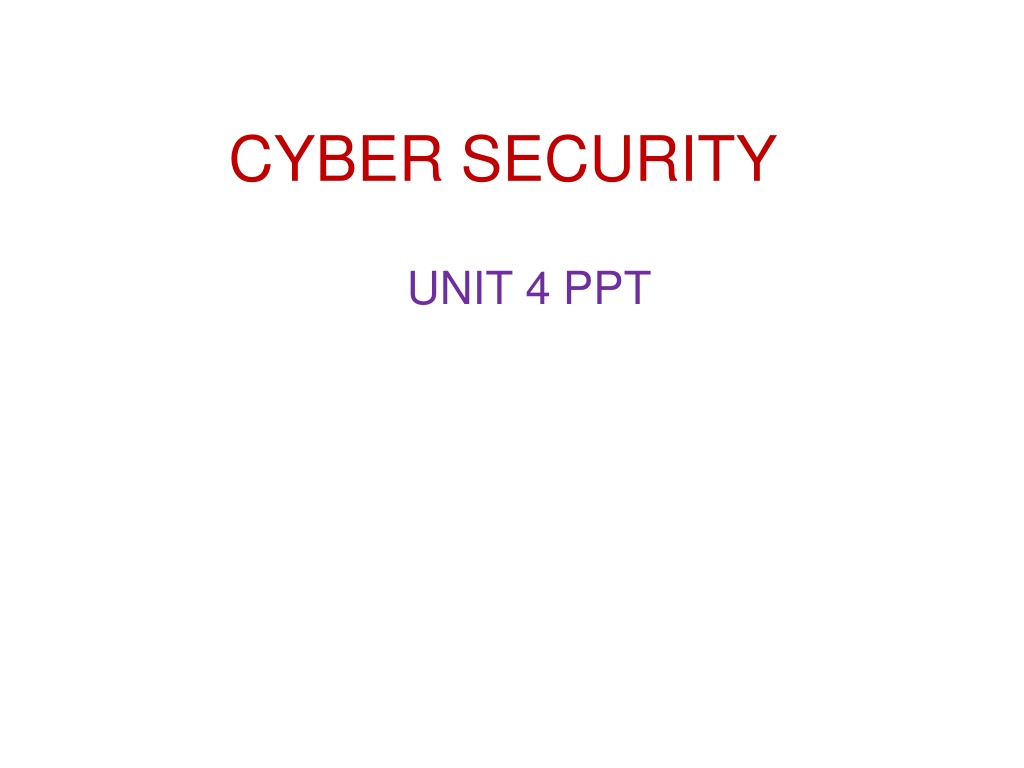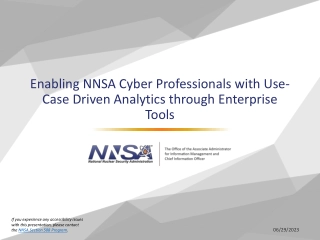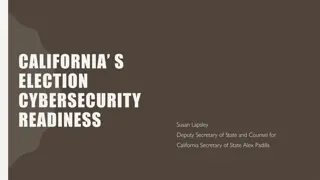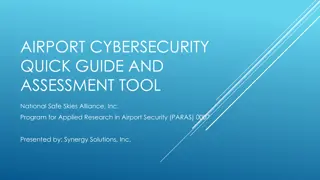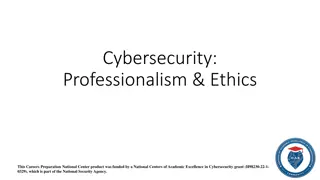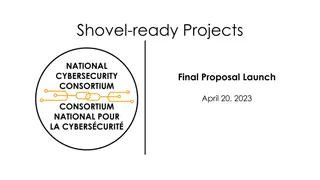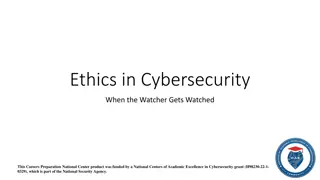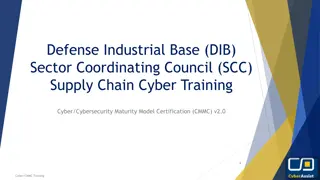Understanding Information Security Policies for Effective Cybersecurity
Information security policies play a crucial role in safeguarding organizational information by defining rules for managing and protecting data. They help protect integrity, confidentiality, and availability, set expected behavior, authorize investigations, define consequences for violations, track compliance, and minimize risks. However, developing and enforcing these policies pose unique challenges for organizations. Security principles ensure data availability, integrity, and confidentiality, while protecting against unauthorized use or disclosure. A security policy's primary purposes are to inform users about essential security requirements and provide a baseline for system configuration and audit.
Uploaded on Sep 07, 2024 | 0 Views
Download Presentation

Please find below an Image/Link to download the presentation.
The content on the website is provided AS IS for your information and personal use only. It may not be sold, licensed, or shared on other websites without obtaining consent from the author. Download presentation by click this link. If you encounter any issues during the download, it is possible that the publisher has removed the file from their server.
E N D
Presentation Transcript
CYBER SECURITY UNIT 4 PPT
Information security policy policy is a documentation of decisions on safeguarding the information security organizational information. level A security policy defines the rules that regulate how your organization manages and protects its information and computing resources to achieve security objectives. Information security policy is used to protect the integrity, confidentiality and availability of organization. It s the first, and one of the most critical, steps to securing your environment .
Need for Information Security Policy A security policy should fulfill many purposes. It should: 1. Protect people and information 2. Set the rules for expected behavior by users,system administrators, management, and security personnel 3. Authorize security personnel investigate 4. Define and authorize the consequences of violation1 5. Define the company consensus baseline stance on security 6. Help minimize risk 7. Help track compliance with regulations and legislation to monitor, probe,and
Challenges for security Policy Extremely difficult to develop, policy often unique to each organization. No common format or process for developing one. Making it simple so everyone can understand and use it. Getting management consensus. How do you enforce it?
Security Principles processing Ensure the availability of data and resources to everyone. Provide integrity of customer compartmentalization of, substitution, insertion, and deletion of that data risk for customers and your organization. assurance for the confidentiality and allow for and the data Ensure the integrity of data processing operations and protect them from unauthorized use.
Ensure customer s and your processed data, and prevent unauthorized disclosure or use. the confidentiality of the Ensure the integrity of the customer s and your processed data, and prevent the unauthorized and undetected modification.
Purposes of a Security Policy The primary purpose of a security policy is to inform users, staff, and managers of those essential requirements for protecting various assets including people, hardware, and software resources, and data assets. The policy should specify the mechanisms through which these requirements can be met. Another purpose is to provide a baseline from which to acquire, configure, and audit computer systems and networks for compliance with the policy.
Types of Security policies and their review process Review process is also essential to ensure that security appropriate or adequate Various types of security policies and their review processes:- 1. World wide web (WWW) Policy 2. E-mail security policy 3. Corporate Policy policy is
WWW policy 1. No offensive or harassing material may be made available through company website 2. No personnel commercial advertising should be made available through company website 3. The personnel material on or accessible from the website should be minimal. 4. No company confidential material should made be available 5. Users of an organization should not be permitted to install or run web server
E-mail security policy 1. Not transmit unsolicited mass email (spam) not to anyone 2. Not send messages that are harassing, hateful or threatening 3. Not send any chain letter 4. Not send message that supports illegal or unethical activities 5. E-mail should not be used to send sensitive information 6. Not use email broadcasting facilities except for making appropriate announcements 7. Keep personal email use to minimum. 8. Keep Policy and procedures secured from abusers. 9. Will demonstrate the same respect to email communication as to verbal communication. 10.Will check grammar, spelling before send the message.
Corporate Policy Corporate Policy is the formal declaration of the principles and polices according to which a company will operate .These policies and principles are prepared by board of directors of the company or senior management committee . Corporate policy comprises: Company s mission statement Company s objectives Principles on the basis of which strategic decisions are made
Policy Review Process created should be reviewed to ensure successful policy appropriately development. Each policy There performed security policy:- are six while important evaluating steps to be information
